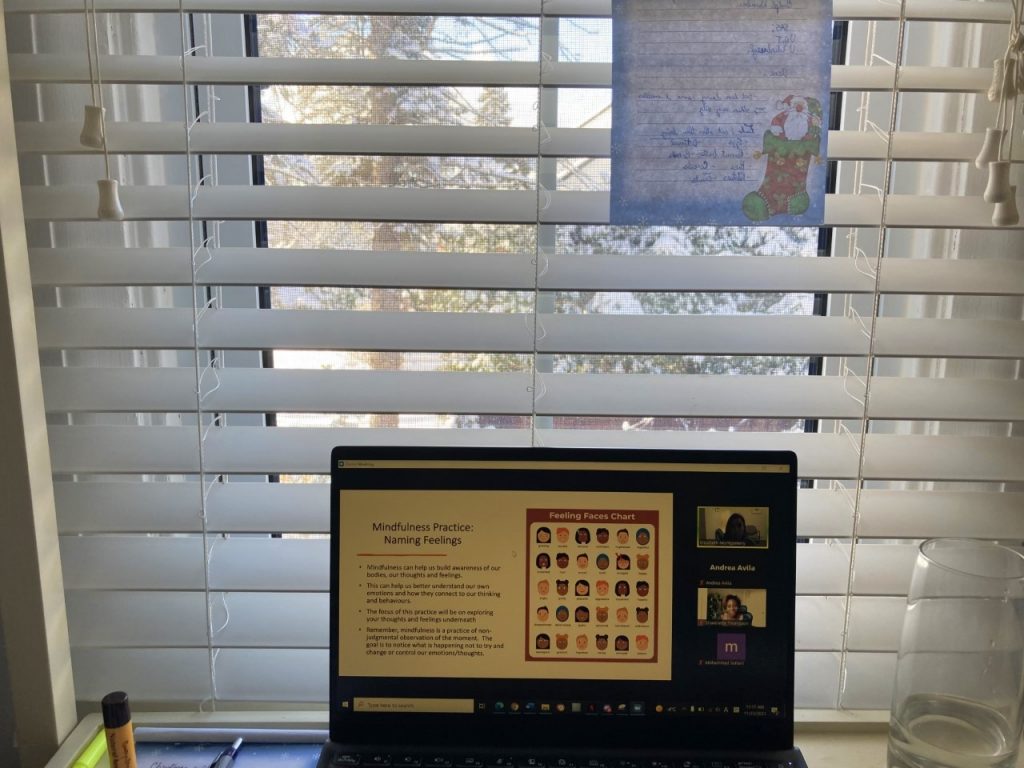If there’s one thing that’s plagued me in my social life it is accepting difficult thoughts. Whether it’s worrying about saying something wrong in a first impression to someone, ruminating about a friend not texting me back, or overthinking a subtle disagreement with someone, all I want to do is get reassurance from that person to not feel so terrible. Dealing with difficult thoughts, regardless of what they are, has been something I’ve been working on for a long time.
While I was on clnx, I came across a workshop hosted by Health and Wellness called Skills for accepting difficult thoughts and emotions. It’s part of a new series of drop-in sessions that the department is running and I thought I should check it out.
The hour and a half session is hosted by two psychotherapists from the Health and Wellness department and they cover various strategies and tips for practicing mindfulness with a focus on observing one’s thoughts and building awareness of them. They take life examples, such as someone cancelling a date last minute, to show how these strategies can be applied.
So many times, I believe my thoughts to be actual facts. If I get an anxious thought over a friend not liking me anymore, I’ll begin to think it’s true despite little evidence of it being a fact. A helpful way to process the anxious thoughts, I learned, is to check the facts. A few questions to ask yourself when having a difficult thought are:
Am I thinking in unbiased ways?
Am I assuming a threat?
Am I predicting a catastrophe?
Does the intensity/duration of my emotions fit the facts?
Even if these questions seem over-the-top, I end up catastrophizing my thoughts in this way. The goal of checking the facts and processing our thoughts is not to try and force feelings way but work on behaviours to manage emotions and thoughts. As I’ve tried to process my thoughts with similar strategies in the past, I learned that it is a process, and changing the behaviour behind these thoughts involves small steps and repeated action of said strategies.
When I’m stressed out about something or I’m feeling down over something minor, I resort to sleeping the day off. I’d be cooped up in my bed for many hours and I usually wake up not feeling much better. When I realized that I catastrophized difficult thoughts, it helped me to understand my behaviours better. Daytime sleeping, for me, is a go-to form of coping and it’s how I avoid uncomfortable feelings. I tell myself every time that I’ll be feeling refreshed when I wake up but I rarely do.

I feel that these workshops are strong resources for improving mental health outside of counselling or immediate resort. They’re well-rounded in the sense that their solutions can apply to many unique situations when addressing difficult thoughts and anxiety. It helped me re-think my sleeping habits and I think the session is useful for situations where we don’t know how process difficult thoughts and emotions.
To sign up for drop-in sessions at Health and Wellness, go to https://clnx.utoronto.ca/ and visit the Health & Wellness calendar.


0 comments on “Change the Behaviour, Not the Feeling: Coping With Difficult Thoughts”